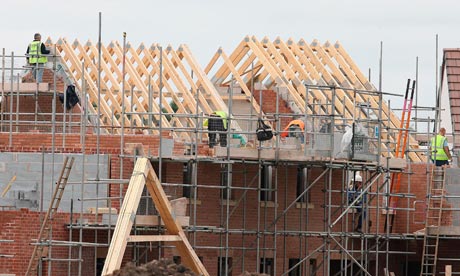House
building has this strange effect on the economy as a whole. Now for instance,
if we were to initiate a programme of building 1 million houses in the UK this
would take multitudes of building workers off the dole as well as boosting the
employment of countless underemployed sparks, brickies, chippies and spreads.
Thus,
we’d have scores of thousands more workers contributing to the treasury and our
flat-lining economy. But it doesn’t end there.
When
people move into new homes they buy everything from paint for the ceilings to
curtains; they have carpets laid; new kitchens installed; new cutlery crockery is
purchased to fill those new kitchen cupboards and drawers; they buy white
electrical goods; they go to the DIY store for garden decking…
You
get the picture. One million new houses would not only kick-start construction,
but would act as a fillip to our almost moribund manufacturing and retail
sectors. In addition to this it would put the brakes on the buy to rent
speculator, thus brining rents down, especially in the south, to more
affordable levels.
If
I can work this out then I’m certain that those in ‘the know’ are aware of this
very simple piece of economic logic. Therefore it’s safe to come to the conclusion
that this government is not interested in:
1.
Reducing
unemployment
2.
Reducing
underemployment
3.
Creating
meaningful jobs in construction
4.
Creating
decent jobs in manufacturing
5.
Boosting
employment in the retail sector
6.
Controlling
the runaway levels of rent in the private rented sector
7.
Building
more affordable social or council housing.
Instead
it looks suspiciously as though this government like its predecessor is willing
to sacrifice jobs in order to drag British workers back to the terms and
conditions of the 1920s and 1930s in order that we can compete with the likes
of China and India.

No comments:
Post a Comment
Tags